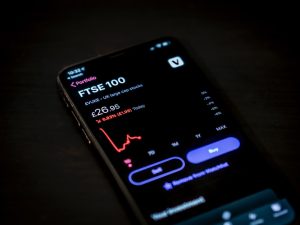Institutional forex traders are professionals who trade on behalf of banks, hedge funds, and other large financial institutions. These traders use a variety of information to make decisions about when and how to trade in the forex market. In this article, we will explore the types of information that institutional forex traders use to make decisions.
Market Data
One of the most important types of information that institutional forex traders use is market data. This includes information about the current price of currencies, as well as historical price data. Traders use this information to analyze market trends and identify patterns that can help them predict future movements in the market.
Market data is typically collected and analyzed using sophisticated trading platforms that provide real-time updates on currency prices and other market data. These platforms may also provide tools for technical analysis, such as charting tools and indicators that can help traders identify trends and patterns in market data.
Economic Data
Another important source of information for institutional forex traders is economic data. This includes data on economic indicators such as GDP, inflation, and employment rates. Traders use this information to gauge the health of national economies and make predictions about how economic conditions may affect currency prices.
Economic data is typically released on a regular schedule by government agencies and other organizations. Traders may also use news sources and other sources of information to stay informed about developments in the global economy that may affect currency prices.
Central Bank Policies
Central bank policies can also have a significant impact on currency prices. Institutional forex traders closely monitor the policies of central banks such as the Federal Reserve, the European Central Bank, and the Bank of Japan. Traders use this information to make predictions about future interest rates and other policy changes that may affect currency prices.
Central bank policies can be difficult to predict, as they are often influenced by a wide range of factors, including economic data, political developments, and global events. However, institutional forex traders use a variety of tools and techniques to analyze central bank policies and make predictions about how they may affect currency prices.
Technical Analysis
In addition to market data, economic data, and central bank policies, institutional forex traders also use technical analysis to inform their trading decisions. Technical analysis involves analyzing historical price data and identifying patterns and trends that can help traders predict future movements in the market.
There are many different tools and techniques used in technical analysis, including charting tools, indicators, and statistical models. Institutional forex traders may also use automated trading systems that use algorithms and other advanced techniques to analyze market data and make trading decisions.
Risk Management
Finally, institutional forex traders use a variety of tools and techniques to manage risk. This includes setting stop-loss orders, which automatically close out trades if prices move against them. Traders may also use hedging strategies, such as buying and selling related currency pairs to offset risk.
Institutional forex traders may also use leverage to increase their potential profits, but this also increases their risk. As a result, traders must carefully manage their leverage to avoid excessive losses.
Conclusion
Institutional forex traders use a wide range of information to make decisions about when and how to trade in the forex market. This includes market data, economic data, central bank policies, technical analysis, and risk management strategies. By carefully analyzing this information, institutional forex traders can make informed decisions that help them achieve their trading goals.





